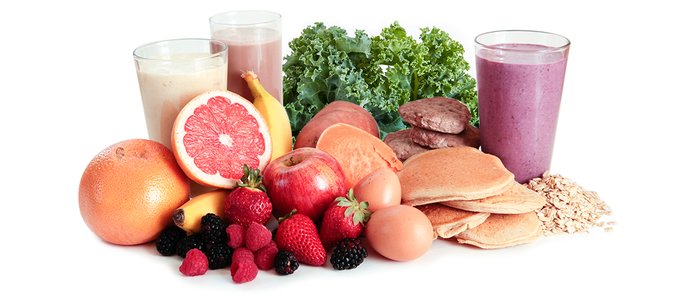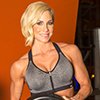Now that we're well into the new year, it's time to check in and see how your resolutions are coming along.
Are you mowing down your fitness and nutrition goals like a boss? Or are you disappointed because you're not seeing results? Either way, chances are you've been wrestling with the one overwhelming component many of us struggle with this time of year: dieting!
The word itself begets eye rolls and crossed arms in today's macro-savvy culture. Someone's "diet" really just refers to the type of foods he or she eats, but that's not how we use this word today. To say you're on a diet is to let the world know you've succumbed to calorie counting and food restriction in the name of weight loss or better health—or both!
There are a million diets on the market today, most with their own trendy names:

- Paleo
- Mediterranean
- Vegetarian
- Vegan
- Keto
- HCG
- Zone
- Macros (IIFYM)
- Raw food
- Gluten-free
- Intermittent fasting (IF)
- Atkins
- High fat
- Low fat
- No fat
- High carb
- Low carb
- No carb
Each of these diets involves restricting certain foods or macronutrients in the name of improved body composition and superior vitality for health-related and, occasionally, ideological reasons.
With so many diets out there, how can you begin to decide what works and what doesn't?
Clarify your goals
Before we dive into efficacy, let's look at how you measure whether or not a diet is working.
When gauging success or failure, should you look at total weight lost or a change in body composition? Do you rely on the bathroom scale to measure progress, or do you use circumference measurements, before and after photos, and body-fat tests? Or, are you using your diet not to lose weight but to gain muscle, break your PR, or improve your overall health?
If you don't know what results you are looking for in a diet, then it's impossible to know whether it's working.

Before you evaluate your diet, think about which of the goals listed above are most important to you (yes, all of them can be important, but choose your top one or two) and keep these goals in mind when looking at how your food choices support your progress.
You may discover that, while you weren't losing weight on the scale, you've lost inches off your waist and gained a few pounds on your lifts. After all, muscle weighs more than fat so the scale can still be climbing even as your body-fat percentage shrinks.
Diets that don't work
Though you may see great results in the beginning of your diet phase, any meal plan that overly restricts your calories or eliminates entire macronutrients and food groups can hinder and ultimately sabotage your long-term fitness goals.
The same is true for plans that don't allow you to eat a variety of foods, leaving you with every craving unfulfilled and consumed by unrelenting hunger.
Diets that do work
Any diet you can adhere to over the long term is the right one for you because if you can stick to it, then you'll see results, and results keep you focused and engaged. Adequate calories and plenty of variety makes it easier to stick to any diet, so if your current meal plan doesn't provide you with both, modify it or find a new one.
In general, focus less on which diets are trending and more on how your food makes you feel. Just because everyone you work with is trying the new fad diet doesn't make it right for you. Eat foods you like that give you energy and don't leave you in a constant state of hunger. In the process of finding what works for you, you'll make some good choices and some not-so-good choices. Somewhere in the middle you'll discover what works for you.
Is there a "perfect" diet?
We all have various strengths, weaknesses, goals, and genetics, so there's no one-size-fits-all diet solution. The diet that works for you is the one that's sustainable and gives you the results you're looking for. Moving your body more, cutting back on unhealthy foods, making small changes, and being consistent: These are the keys to successful eating.

Whether you are reassessing your current diet or in the market for a new plan, here are a few essential questions to ask yourself first:
- Is your diet goal specific and measurable?
- Does the diet allow you to eat the foods you love?
- Does the diet give you energy and make you feel good?
- Is this a diet you can stick with for years to come?
- Can you maintain this diet as you travel, socialize, and go through your daily routine?
- Are you seeing results?
- Do you have a good relationship with food?
- Do you have someone to hold you accountable to your diet?
- Do you celebrate small changes in your physique?
If you answered "no" to any of these questions, it's probably time to revisit your goals, focus on smaller, more obtainable milestones, or change your mindset. Move away from thinking of what you're doing as going on a "diet" and focus more attention on choosing foods that you like, that are good for you, and that don't overburden you with too many calories for your goals. Figure that out, and those results you're looking for will soon follow.



